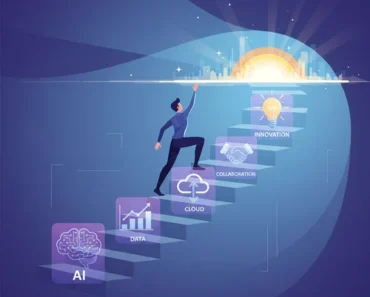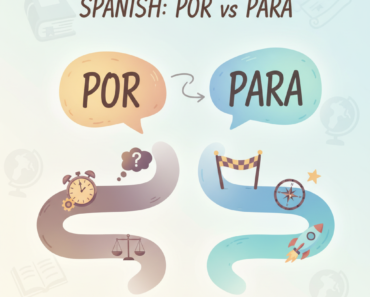Across the long history of human thought, people have always paused and wondered about the nature of knowledge. A child asking why the sky is blue, a scientist questioning the universe, or a traveller studying ancient civilizations—they are all part of the same journey. This journey is what philosophers call Epistemology. Long before the word existed, humans were already searching for truth. They wanted to understand the world, themselves, and the mysteries around them.
In simple terms, epistemology meaning revolves around the study of knowledge – how people know things and what counts as real knowledge. This topic has fascinated thinkers from ancient times, because it touches every corner of human life. Without some understanding of how knowledge works, every decision would be based only on instinct or guesswork. The curiosity to understand the truth is what separates human beings from every other creature.
Every storyteller, historian, and philosopher has, knowingly or unknowingly, engaged with epistemology philosophy. They all ask: “How do we know what we know?” This question lies at the heart of every discovery. Whether someone studies stars in the sky or emotions in the human heart, the search for reliable understanding begins with examining the idea of knowledge.
The epistemology definition is often described in academic terms, but in everyday life, it simply means exploring how beliefs turn into knowledge. This subject is not just for scholars in libraries. It lives in the real world—in conversations, arguments, investigations, learning, and personal reflection.
For anyone wondering about the foundation of human understanding, what is epistemology becomes more than a question. It becomes a doorway into a deeper awareness of life itself.
What Is Epistemology? Understanding the Roots of Knowing

Epistemology meaning refers to the study of how humans gain knowledge, understand truth, and justify their beliefs.
Define Epistemology
Epistemology is defined as the branch of philosophy that studies the nature, sources, limits, and validity of human knowledge.
When someone tries to define epistemology, they often turn to the classic philosophical explanation: it is the study of knowledge, belief, and justification. But behind those academic words lies a powerful, human story. Epistemology began as a set of questions asked by curious minds trying to break free from superstition and confusion.
The simplest answer to what is epistemology is that it examines how people know what they claim to know. A person may believe something is true, but philosophers ask whether that belief is trustworthy, logical, or based on real evidence. This search for clarity creates the foundation of every science, every historical inquiry, and every rational argument.
The roots of this field stretch back to ancient Greece. Thinkers like Plato and Aristotle were among the earliest to explore epistemological questions. Plato wondered whether true knowledge came from the senses or from the mind’s own reasoning. Aristotle wanted to understand how experience, observation, and logic connect together. Over centuries, other cultures—from India to China to the Islamic world—developed their own unique epistemologies, each offering different paths to understanding truth.
These diverse traditions show that knowledge is not a single, fixed idea. Instead, it is shaped by experience, culture, language, and human imagination. For some philosophers, knowledge comes from rational thinking. For others, it comes from sense experience. Some believe knowledge is spiritual, while others trust scientific testing and evidence.
When studying epistemology philosophy, one learns more than theories. One learns how ideas travel through history, how civilizations shape beliefs, and how people build confidence in what they accept as truth. It is a field that grows continuously because new generations keep asking new questions.
So, in its most human sense, epistemology meaning is not only about textbooks or theories. It is about the stories people tell themselves about what is true, why they believe it, and how they defend those beliefs.
How Do We Know What We Know? Classical and Modern Answers
Every person spends their life gathering information, forming beliefs, and testing their ideas against the world. But the question “How do we know what we know?” has inspired entire schools of thought in philosophy. These schools represent different epistemologies, each offering a unique explanation for the nature of knowledge.
One of the classical approaches is rationalism. This view suggests that the mind itself is the main source of knowledge. Rationalists believe that logical thinking can lead to truth even without physical evidence. Stories of mathematicians solving problems in their minds, or inventors imagining solutions before building anything, show how rationalism shapes daily life.
On the other side stands empiricism, which claims that knowledge comes from experience. Empiricists argue that the five senses—sight, hearing, smell, taste, and touch—are the windows through which the world becomes real. A child learning that fire is hot or a traveller understanding a new culture through observation are simple epistemology examples rooted in empiricism.
Some philosophers, like the skeptics, take a different path. They challenge the certainty of knowledge itself. Skepticism raises doubts about whether humans can ever achieve complete truth. While this view may sound unsettling, it plays an important role in questioning assumptions and encouraging deeper investigation.
In the modern world, these classical views combine and evolve into new epistemological perspectives. Scientists mix rational thinking with empirical testing. Historians use both documents and reasoning to interpret past events. Even ordinary people use a mixture of logic and experience to make daily decisions.
These blended approaches show that knowledge is not simple. It is a living process—a conversation between the mind, the senses, and the world. Through everyday storytelling, learning from mistakes, exploring new experiences, and listening to others, people create their own personal epistemology without even realizing it.
The Sources of Knowledge: A Journey Through the Human Mind
Understanding where knowledge comes from is an essential part of epistemology philosophy. Over time, philosophers have identified several major sources of knowledge. Each one offers a different doorway into human understanding, and together they create a rich picture of how people build ideas.
One major source is perception. This refers to everything a person learns through their senses. The sound of rain, the brightness of sunlight, the taste of food, or the feeling of wind—all these sensory experiences form the base of everyday knowledge. Perception shows how deeply human beings depend on their senses, even when those senses can sometimes deceive them.
Another key source is memory. Without memory, humans would live only in the present moment. Memory allows someone to remember a friend’s face, a lesson learned in childhood, or a mistake that should not be repeated. Philosophers often explore the epistemological question of whether memory is always reliable, or if it changes over time.
A third source is testimony—knowledge gained by listening to others. People depend on books, teachers, news, scientists, and even friends for information they cannot discover themselves. Testimony plays a powerful role in social life and is one of the most practical epistemology examples, because most of what people learn comes from others.
A fourth source is intuition. This refers to the deep, inner sense that something is true or meaningful, even without detailed evidence. While intuition is not always accurate, it shapes human creativity, emotional understanding, and moral decisions.
These sources interact in complex ways. Perception may spark memory. Memory may shape intuition. Testimony may lead to new experiences. Together they form a network of knowledge that every person relies on.
Philosophers often debate which source is strongest or most trustworthy, and different epistemologies offer different answers. But in the broader sense, epistemology teaches that each source contributes something valuable. Knowledge is not a single stream; it is a river fed by many smaller channels.
Why Epistemology Matters in Today’s World?

In a world filled with information, opinions, and digital noise, understanding epistemology has become more important than ever. People are constantly exposed to news, rumours, theories, and conflicting claims. Knowing how to interpret these things is essential for making wise decisions.
One immediate advantage of studying epistemology meaning is learning how to recognize reliable information. When someone understands how knowledge is formed, they begin to question sources, check evidence, and avoid being misled. This is especially important in an age of misinformation, where false stories travel faster than truth.
Another reason epistemology philosophy matters is because it encourages open-mindedness. People with strong epistemological awareness understand that their beliefs might change when new evidence appears. This ability to grow intellectually helps societies remain flexible and progressive.
Modern scientific research also depends heavily on epistemological thinking. Scientists must test ideas, evaluate data, and prove claims. Without clear standards of knowledge, science cannot move forward. Even in everyday life, people use simple epistemology examples when deciding whether to trust a product review, a historical account, or medical advice.
Epistemology also has a role in politics and social debates. Citizens who understand the structure of knowledge can evaluate political claims more thoughtfully. They can separate emotional influence from factual reasoning. This leads to healthier discussions and stronger democratic societies.
Most importantly, learning what is epistemology teaches people how to think more clearly. It allows them to understand not only the world but also their own minds. In this way, epistemology becomes a tool for personal growth, helping individuals become more confident, curious, and wise.
Conclusion: The Lifelong Search for Understanding
The journey through epistemology is a journey into the heart of human understanding. From ancient thinkers to modern researchers, everyone has searched for ways to explain how knowledge works. People may come from different cultures or believe in different epistemologies, but they all share the same desire to understand the truth.
This field reminds us that knowledge is not only about facts. It is about curiosity, imagination, questioning, and learning. The simple act of asking “How do I know this?” opens the door to deeper awareness. And the answer to that question lies within the rich world of epistemology philosophy.
Epistemology continues to guide human thought, encouraging people to examine their beliefs and trust only what is well-founded. Through stories, experiences, and reflection, humans keep building their understanding of the world. The search never ends—and that is what makes it beautiful.





